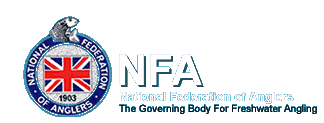Following the launch of the National Federation of Anglers’ scheme called ‘Promoting Positive Images’ back in 2006, the NFA will once again be providing the opportunity for 10 anglers with disabilities to be trained as fully licensed angling coaches. This year the anglers will be trained as Level One Angling Coaches following the recent launch of the new coaching qualification.
The continuing aim of the scheme is to create positive images of disabled people as coaches and leaders within the community. It will also enhance and promote the therapeutic value of coaching by providing access to meaningful work that anglers with disabilities enjoy.
The course will take place on 8th and 9th of September and will be held at the NFA Headquarters at Holme Pierrepont. The basic cost of the course will be fully subsidised for anglers with disabilities, so long as they meet the criteria described below.
In order to be eligible for the coaching course potential coaches will need to meet certain criteria to qualify. Potential participants will need to be claiming disability living allowance and willing to make themselves available to work during the week for schools, local authorities and other government organisations. However the most important requirement is the desire and dedication needed to become a qualified Angling coach.
To be considered for a place on the Level One coaching course please contact the Angela Woodgates at the NFA directly by email, angela.woodgate@nfadirect.com or by calling 0115 981 3535.
Terry Fell stated “We all know that Angling is the most equitable of sports and unlike most other sports, anglers with disabilities are perfectly able to coach able bodied people. We would hope that these coaches would then make themselves available to work with schools and local authorities in angling education.”
Paul Baggaley, Chief Executive Officer of the NFA commented, “We need people who are available to coach during the week to help deliver our commitment to angling education in schools. The benefits to angling and society are twofold. It helps present positive images of people with disabilities and it will bring the benefits of angling education into the school environment.”
Paul Cartwright Regional Officer for the Disabled in the North East concurred when he said that “This is not just good news for disabled anglers, this is good news for angling. This is a great opportunity to demonstrate what angling can do and what people with disabilities can do.”







